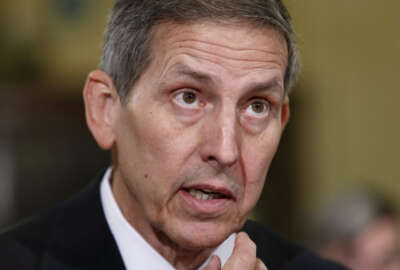

Congress is talking about privatizing the air traffic control system. Senior Correspondent Mike Causey has one suggestion before members actually vote.
It’s probably safe to assume that many if not most taxpayers believe, all things being equal, that the private sector can do most things better, faster and maybe at less cost than the government. And that many people — outside of the government at least — favor outsourcing some government functions. Especially if it would save money or at least allow ordinary people to get slightly lower tax bills.
The problem with privatization is figuring out which government jobs — or entire agencies — should leave the civil service comfort zone. Few private employers would offer a 5 percent match 401(k) plan. Many would save money on retirement costs by not having a retirement plan. All manner of things — from vacations to sick leave and health care — could be subject to collective bargaining. As in you take it or you don’t get the job.
Current and past presidential candidates have promised (or at least proposed) to get rid of the Internal Revenue Service. Though it sounds simple — a flat tax would just about do it — it hasn’t happened. And won’t because our absurdly complex (and sometimes conflicting) tax code was created by the very politicians who would be asked to make it go away.
The Department of Health and Human Services has been on more hit lists than Fidel Castro in his prime. But HHS continues to function because lots of people like it for a variety of reasons. Or have a vested interest in keeping it a cabinet agency rather than dozens or hundreds of private contractors. Ditto for the Environmental Protection Agency.
Privatizing government is not necessarily a political thing. The biggest decrease in government jobs, which were farmed out to the private sector, came under President Bill Clinton. Back then, a $25,000 buyout was worth considering. Government got “smaller” for a while. And it became more difficult to contract out the costs of services that continued, but were done by contractors rather than civil servants.
There has been talk, off and on, about privatizing the nation’s air traffic control system. Currently is it part of the Federal Aviation Administration. The tail that wags the Department of Transportation dog. The privatizing FAA talk is on again. Congress has been messing with FAA’s budget by approving it only for the short term.
Before you decide whether that’s a good idea, or a bad one, click on this site. What you will see is the real time location of every aircraft in the world right now. Check the North American portion and look at the traffic in the air. Some of those planes are pretty close. In fact, if you’re in one of them you might not want to look at the chart. Ever.
As a group, members of Congress — the House and the Senate — are a high-flying lot. They are constantly going from Washington back their home districts. Or to trouble spots. Places like Paris or Hong Kong to get firsthand information. Often times, if a staffer calls the airline to “check” the itinerary, the representative or senator might get mysteriously bumped up to first class.
So fly they must. And flying — compared to say driving — is one of the safest modes of transportation. So far. So before the politicians farm out the FAA, they might want to check out the flight tracker.
By Michael O’Connell
The longest non-stop flight lasts 17 hours and 35 minutes. The 8,580-mile flight goes from Dubai, in the United Arab Emirates, to Panama City, Panama.
Source: Thrillist
Copyright © 2025 Federal News Network. All rights reserved. This website is not intended for users located within the European Economic Area.
Mike Causey is senior correspondent for Federal News Network and writes his daily Federal Report column on federal employees’ pay, benefits and retirement.
Follow @mcauseyWFED

